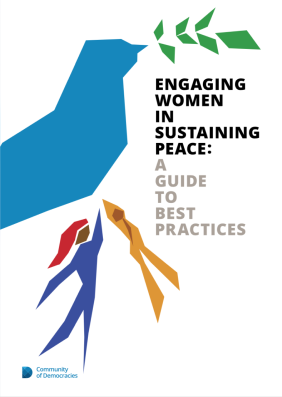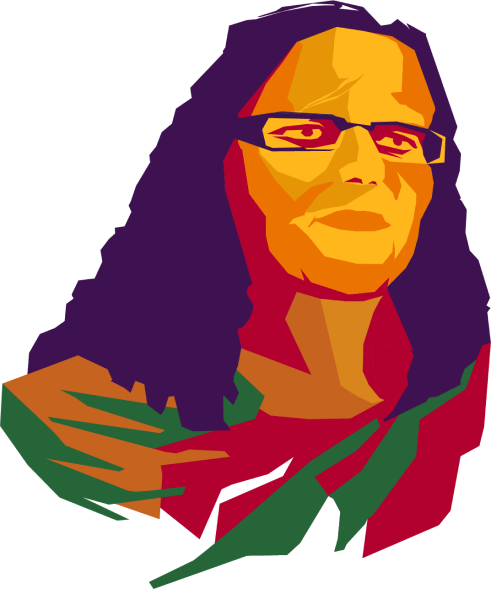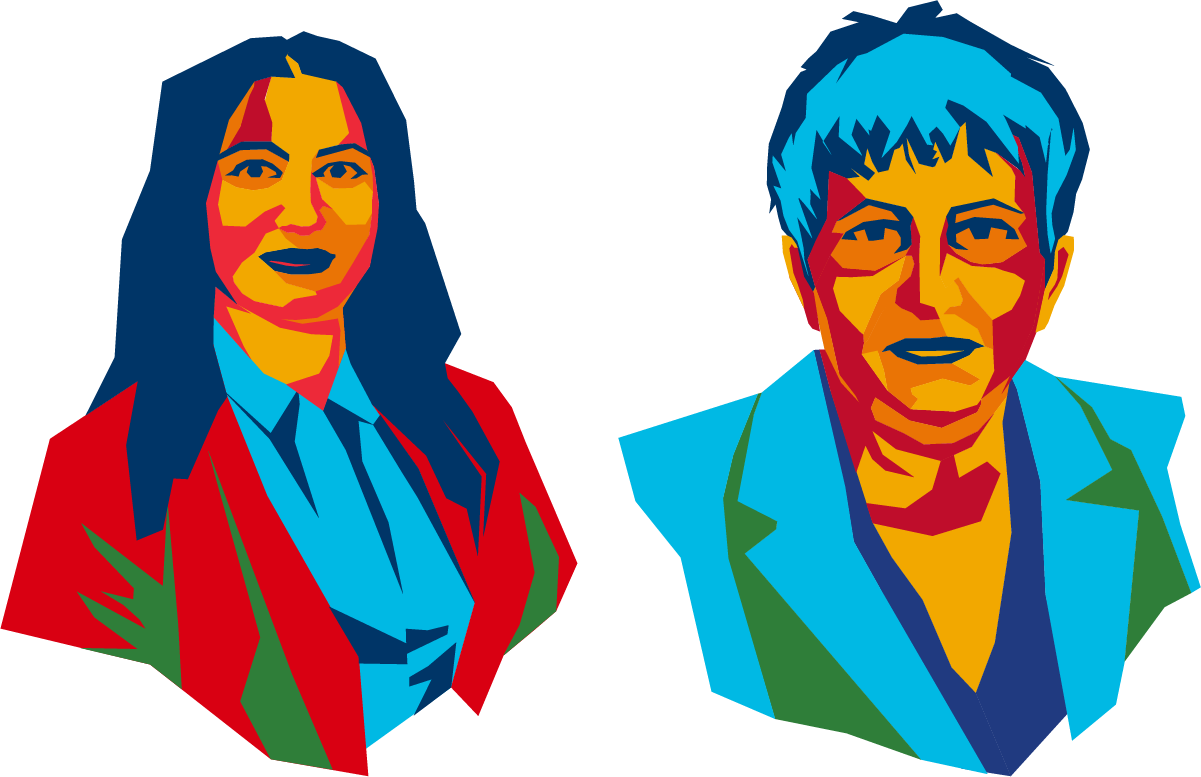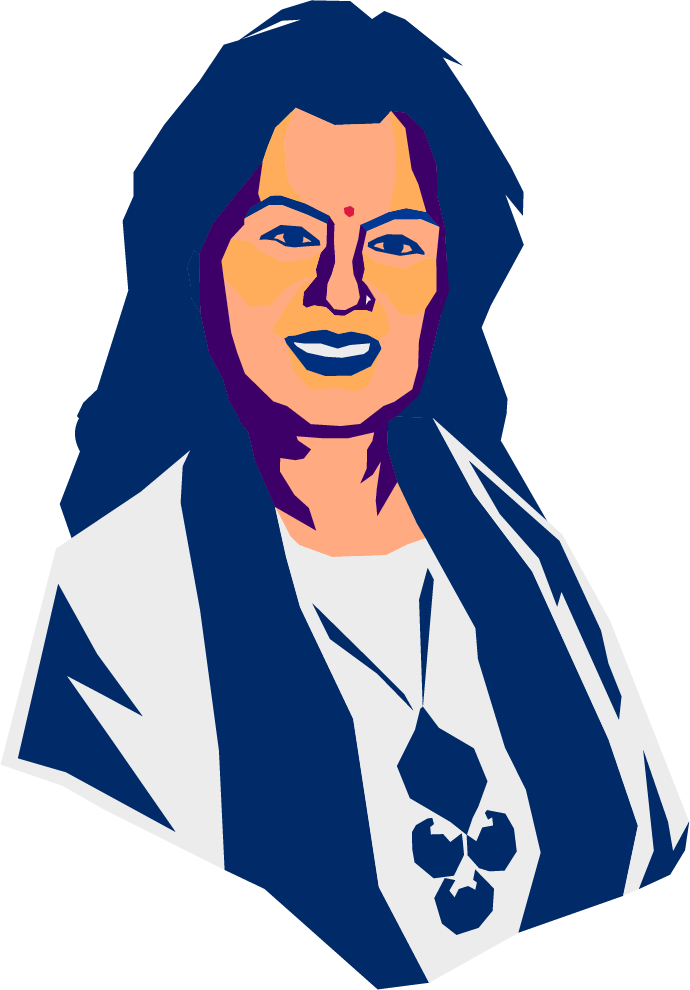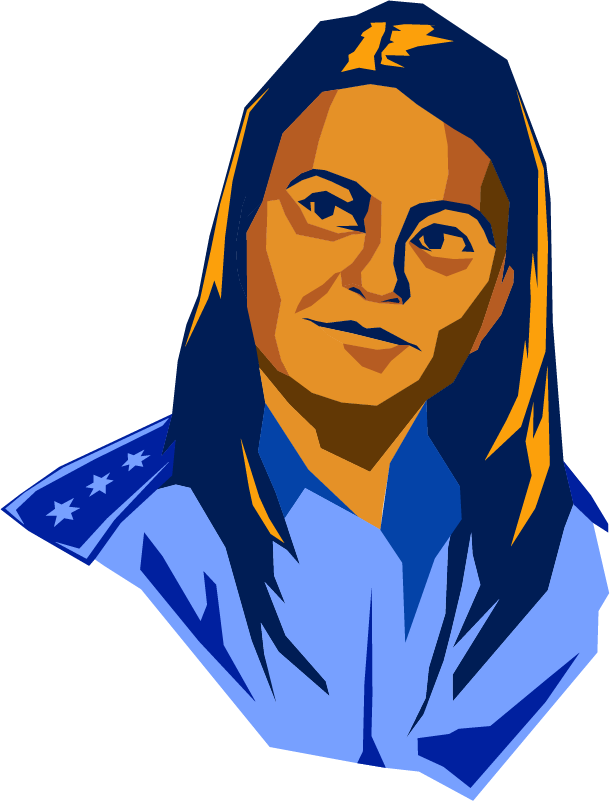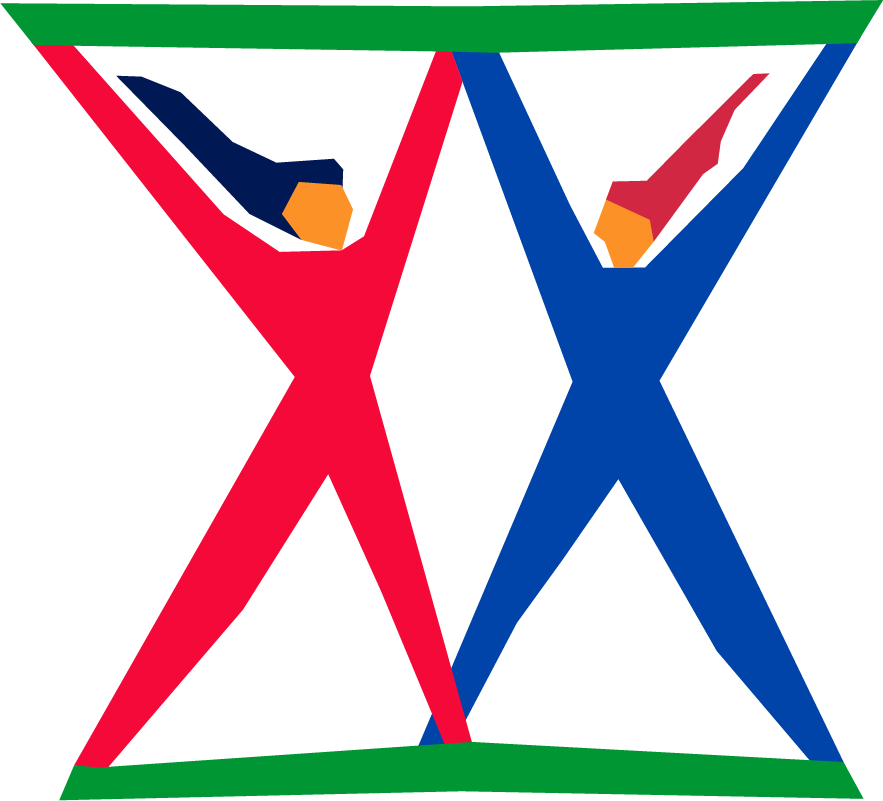According to the Global Partnership for the Prevention of Armed Conflict,1 Economic integration as a Conflict Prevention Tool: South Caucasusthe collapse of the Soviet Union in 1991 resulted in the rise of armed conflicts where newly independent states included areas that were previously either autonomous or held special status within the Soviet Union. These conflicts led to over 30,000 deaths and 1.5 million displaced people. The armed conflicts mostly ended, but no peace treaty or other political framework provided resolution, leaving the conflicts “frozen”. Nearly 30 years later, these frozen conflicts remain and their number has increased. Nagorno-Karabakh is a protracted conflict, and women’s peacebuilding efforts transcend across the generations.
Women in Peacebuilding: Nagorno-Karabakh
“We always worked in time of crisis as we are constantly trapped in a state of neither war nor peace and periodically our meetings were postponed due to the aggravation of the situation on the contact line by killings or military operations recommencement.”
As the President of the Artsakh (Nagorno-Karabakh) Institute of Popular Diplomacy, a non-governmental organization (NGO), Irina Grigoryan is at the helm of a local organization that works to build bridges between Armenian NGOs and civil society representatives in Azerbaijan: “I have been working in non-governmental organizations since 1998. From the very beginning, we had a wide circle of partners. We had been working in the North and South Caucasus, and in 2002 our organization had specifically focused on confidence-building measures to the conflict around Nagorno-Karabakh.”
When she introduces herself, 29-year-old Marina Simonyan proudly declares that she is from the Republic of Artsakh even while the territory remains internationally recognized as part of the Republic of Azerbaijan. A lawyer by profession, she declares more than an interest in peacebuilding: “It is the most important part of my life. I have lived almost my whole life under conflict. Peacebuilding is my mode of life.”
While the world focuses on the COVID-19 pandemic, armed conflict is a pandemic, Simonyan says, the humanitarian crisis during the Nagorno-Karabakh conflict (1991-1994) and the four-day war in 2016 had far reaching consequences. In 2016, she organized the first-aid training for women as a peacebuilding response: “Considering the fact that we had an escalation of the conflict in 2016, it means that here in Artsakh it’s neither peace nor war situation. Similarly to many people living in conflict, we can consider war as a pandemic that we fight for so many years. Now with the coronavirus pandemic, the situation is even worse as we have restricted movement, and when every moment you expect a new escalation.”
The United Nations call for a global ceasefire is very relevant, she adds, but this requires all sides of the conflict – Azerbaijan, Armenia and Nagorno-Karabakh – to support the ceasefire, particularly in a region where many women have lost loved ones and homes. Women have mobilized across borders to improve the knowledge and skills of women from this region in the peacebuilding process, to prevent possible escalation of the conflict and the inevitable violence against women during military operations.
Resourcing, Organizing and Mobilizing
Since the 1994 ceasefire, decades of negotiations – mediated by the Organization for Security and Co-operation in Europe (OSCE) Minsk Group Co-Chairs representing France, Russia and the United States of America – have failed to resolve the conflict.2The Nagorno-Karabakh Conflict: A Visual Explainer
Until 2009, Grigoryan’s cross-border diplomacy between NGOs and peace activists received support from the international community: “Many women were members of our organizations as well as of partner organizations and we had the opportunity to work only with women within the framework of the Caucasian Women’s League. This organization was supported by Henrich Böll Foundation and our task was to strengthen the role of women in the regions in the South Caucasus.”
Countless number of meetings enabled women to address multiple levels of issues affecting women, refugees and youth: “For me it was interesting to work with women in the Caucasus League. We made mutual trips and studied situations of women in the regions, including in the South and North Caucasus. We were resolving issues by consensus method. This was certainly difficult but incredibly interesting. We held trainings, seminars with partners from Armenia, Azerbaijan and other countries, with the support of International Alert. In South Ossetia, we met refugees from Georgia and there was a Georgian woman with us; we helped the desperate women to find strength in themselves and rebuild their life. We advised them to open a kindergarten in that isolated corner of South Ossetia, without any financial or other support. They couldn’t imagine it was impossible as it sounded like a fairy tale, but they opened it. And when we returned home, after some time, we were informed by the women about their progress in opening the kindergarten in this absolutely forgotten corner of South Ossetia, where there are no roads in winter-time. That is to say – women can do anything when they join efforts!”
Then everything slowed and the negotiations taking place under the auspices of the Minsk Group reached a stalemate.
“We faced a heavy disappointment in 2015 when the government of Azerbaijan began its political investigation of participants in dialogue meetings. Due to this issue, all our projects and contacts were completely cancelled,” says Grigoryan. She adds that with funding becoming scarce, work is incomplete: “The results of this study were funded by donors, but funding had stopped and everything remains incomplete. The same thing happened with the Caucasian Forum.” Sustaining peacebuilding requires resources at the local level: “Of course, I understand that international organizations cannot always support the initiatives. People should be able to continue these initiatives at the local level. But when it comes to conflict resolution, you need the resources to bring the different sides together, to resource the mediator.”
Resourcing women-led peacebuilding efforts also validates women’s leadership as Grigoryan points out: “Perhaps, our organization is one of the few that worked to resolve conflict transformation and peacebuilding. We had never experienced any violence. I am not saying that there is no violence at all, undoubtedly, there is domestic violence, especially in the post-war period, but we never received any threats in political forms.”
In light of commitments like United Nations Security Council Resolution (UNSCR) 1325, women’s participation is vital to strengthen the foundation for creating sustainable human security and equitable development in countries emerging from conflict, says Simonyan: “UNSCR 1325 recognizes that women are disproportionally affected by conflict, and to address this, women should play a key role in achieving lasting peace and sustainable development. There are obvious reasons why women are important to the peacebuilding process. They constitute half of every community and the difficult task of peacebuilding must be done by men and women in partnership. Women are the central caretakers of families and everyone is affected when they are excluded from peacebuilding. Women are also advocates for peace as peacekeepers, relief workers and mediators.”
“Not only here, but throughout the Caucasus as well, women are an important resource that can be used for the development of civil society. Women can communicate effectively. We find a common language with male and female, accordingly, these resources are necessary to use. There should be created opportunities and platforms so that women can work. It is necessary to mobilize our collective power,” adds Simonyan.
Resources are also vital, she adds, to be able to continue to engage with more women from different regions of the Republic of Artsakh where they are able to localize priority pillars of UNSCR 1325 including participation and the prevention of violence: “During one of the meetings conducted with women in districts of Artsakh, one of the representatives of a local NGO presented the 1325 Resolution. From the faces and questions of people we realized that they didn’t understand the concept of the resolution and how it could help them to tackle the problems they faced regularly,” says Simonyan. She adds that the opportunity to attend international conferences contributes to building international solidarity and understanding of her country situation: “I participated in a conference on the general situation of human rights and problems in unrecognized states in The Hague organized by the Helsinki Committee where we were able to discuss the role of women and their involvement in different spheres of unrecognized states.”
Without resources, she adds women will not be able to advocate for non-violence resolutions: “In this case, I see a problem in the isolation of Artsakhian people from the world. Nobody wants to even ask us what we want, what we need, what we feel. Everybody is trying to make decisions about people. I think to sustain peace the international society has to accept that we exist! Finally we must do our best to sit again around the negotiation table with our neighbours and put all the efforts to make them understand that the conflict is possible to solve only in a peaceful way.”
Accountability to UNSCR 1325
While there is no formal action plan on UNSCR 1325 in Nagorno-Karabakh, there has been progress to enhance women’s participation and leadership roles, according to Grigoryan, in the parliament and government: “There are three or four women ministers and three or four women members of parliament. We recently had elections and there were two women running for President, and we expect there will be more women represented in the new parliament. Women also work in management positions as deputies, heads of department”.
Localization of UNSCR 1325 is imperative, she adds. It requires the involvement of women, especially those who live in the border villages which still experience periodic shootings: “There are many problems and we must evaluate our priorities for these ten years, but one thing for certain is that we need to support women!” She adds this is vital for women’s input and participation into the negotiation processes.
Forward Looking Strategies
In an interview with the International Politics and Society Journal in 2015, Grigoryan talked of her hope for reconciliation, especially as civil society gains a stronger foothold in the political landscape: “Certainly, it is not easy to forget the past as the war was on the territory of Nagorno-Karabakh. And today, when Nagorno-Karabakh is not allowed a place at the negotiating table, it is outside the scope. I believe every effort should be made to prevent resumption of hostilities until people understand that the only solution to their problems is to find a peaceful solution to the conflict.”
Grigoryan says it comes back to resourcing to support the work of women of Nagorno-Karabakh that would enable them to conduct meetings and dialogue processes on the level of public diplomacy. This would also support the mentorship of young women: “To develop the youth duly, one needs mentors. We need to organize leadership schools, implement various educational and peacekeeping projects that can guide the youth in the right direction.”. Simonyan echoes the recommendations: “Although youth play a great role in the peacebuilding process, it is very important that the experienced women transfer their knowledge to young women. For that I would suggest to open a leadership school or to organize leadership trainings for women.”
The story of Marina Simonyan and Irina Grigoryan of Nagorno-Karabakh speaks to women’s involvement in post-conflict financing, a third commitment from the UN Secretary General seven-point action plan for gender-responsive peacebuilding (2010). Based on desk research conducted on post-conflict countries across the world, the Community of Democracies’ publication on “Engaging Women in Sustaining Peace: A Guide to Best Practices” distils seven commitments outlined in this action plan and identifies good practices and lessons learned in engaging women in peacebuilding.




 go back: about
go back: about
